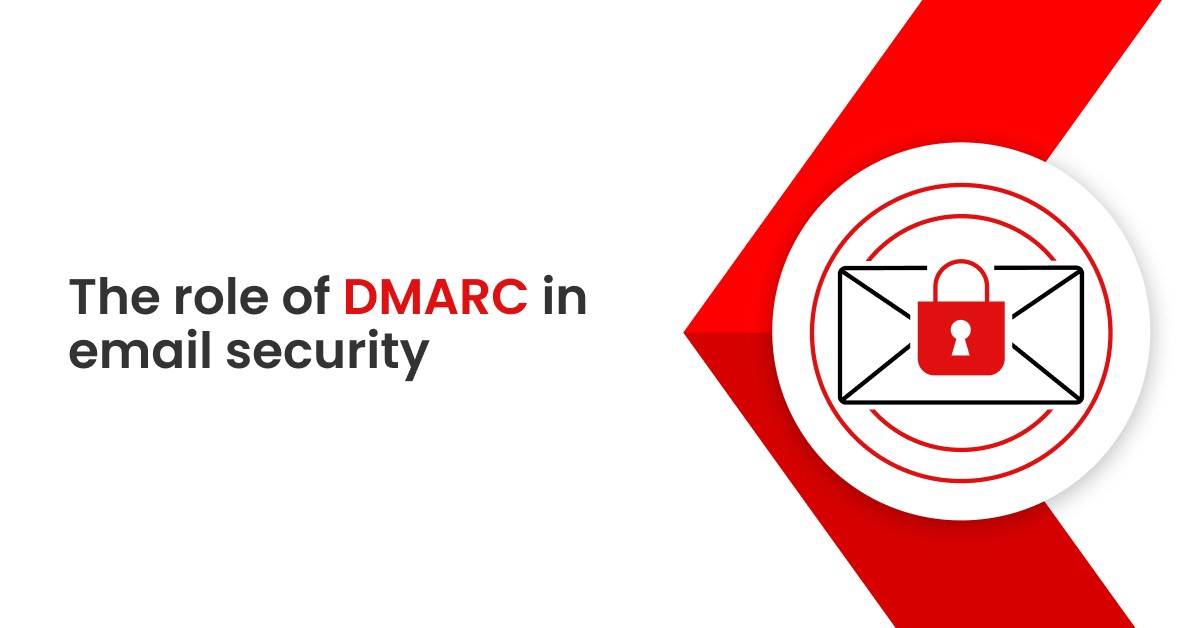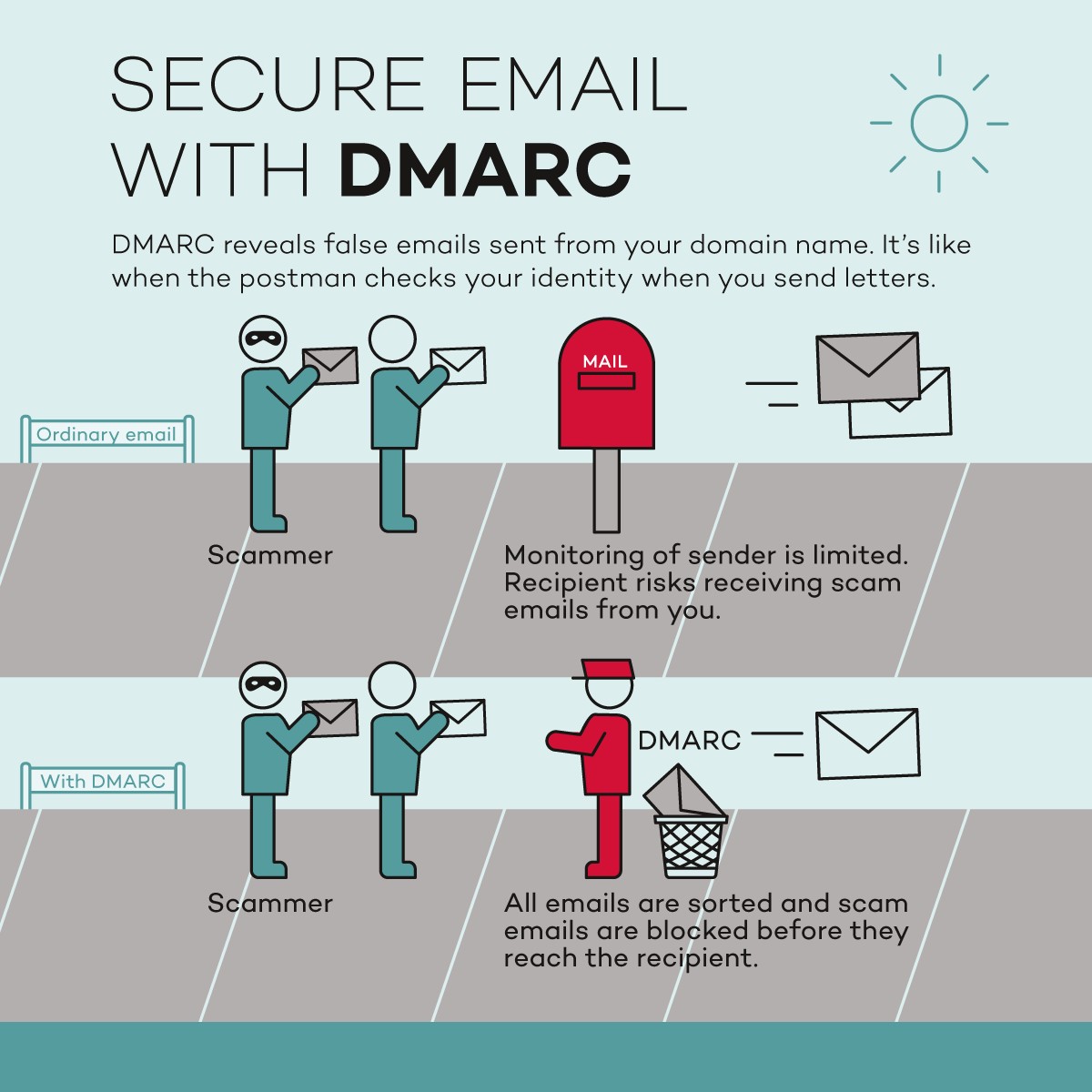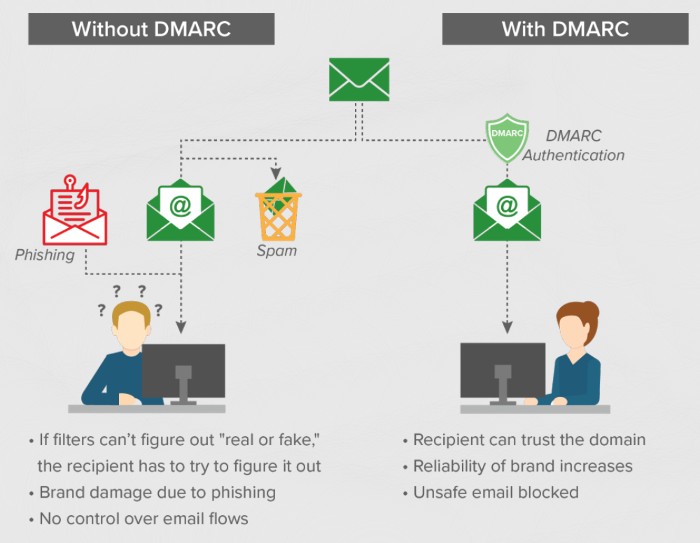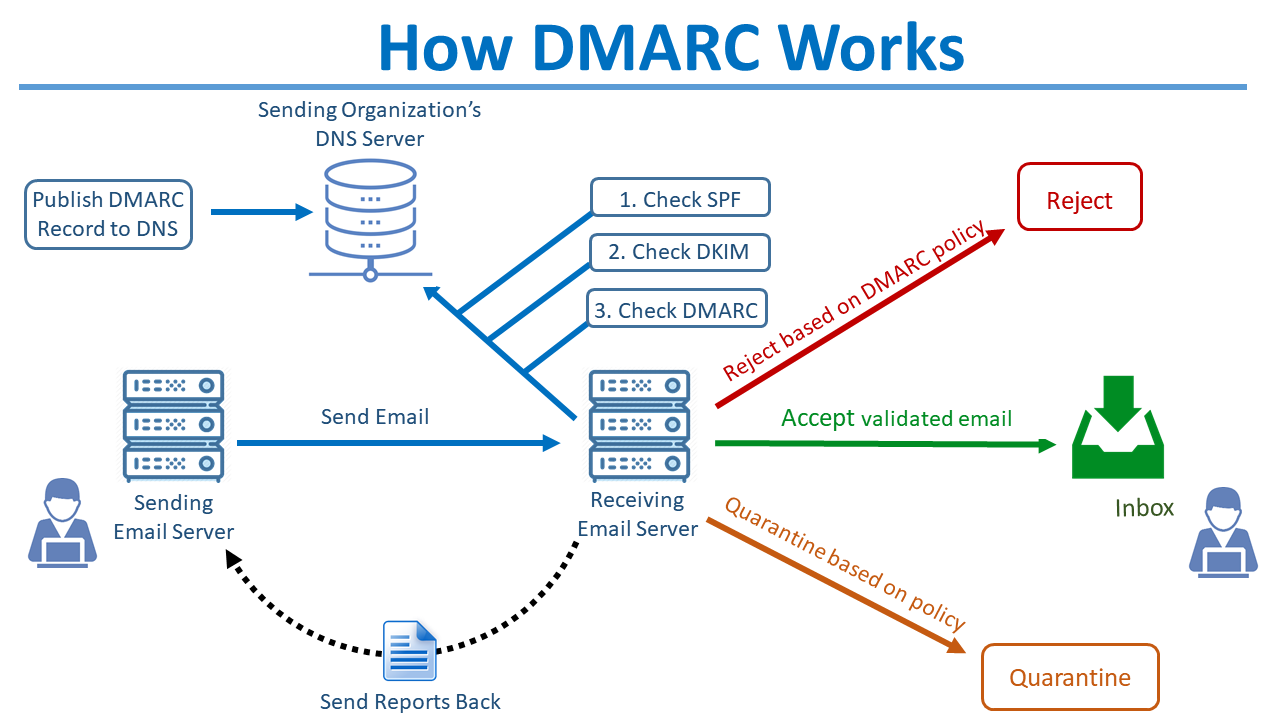DMARC – Protect your domain from unauthorised use

What is DMARC?
DMARC (Domain-based Message Authentication, Reporting & Conformance) is an email authentication protocol that helps protect your domain from unauthorised use, including phishing, spoofing, and impersonation attacks. DMARC builds on SPF and DKIM to verify that emails are genuinely sent by your organisation, and enables you to set policies for how unauthenticated emails are handled.
Why Does Your Business Need DMARC?

- Enhanced Email Security: DMARC protects against phishing and spoofing attacks, ensuring only legitimate emails are delivered.
- Improved Deliverability: Authenticated emails are less likely to be marked as spam, increasing the chances your messages reach their intended recipients.
- Brand Reputation Protection: Prevents malicious actors from abusing your domain, increasing trust and credibility with customers.
- Comprehensive Reporting: DMARC provides detailed reports on email activity, giving visibility into who is sending emails on behalf of your domain and helping you identify unauthorised senders.
- Compliance and Data Protection: DMARC helps meet industry standards and regulatory requirements for email security, supporting your data protection strategy.
- Reduced Risk of Cybercrime: By blocking fraudulent emails, DMARC reduces the risk of phishing scams and other cyberattacks targeting your business.
- Increased Recipient Trust: Recipients are more likely to trust emails from your domain, knowing you have robust authentication in place.
How Does DMARC Work?

DMARC policies are enforced on incoming emails. Email servers will reject or quarantine emails that fail DMARC checks, based on your chosen policy (none, quarantine, or reject). DMARC also provides reports on email activity, phishing threats, and spoofing attempts, enabling you to take action against security threats.
- SPF: Checks the sender’s IP address against authorised senders.
- DKIM: Authenticates message content using cryptographic signatures.
- DMARC: Enforces authentication policy and provides reporting.
Best practice is to start with a monitoring policy (p=none), analyse reports, then gradually move to stricter policies (quarantine, then reject) for maximum protection.

Reflective IT Tip
DMARC is a critical component of your cyber security strategy. Let Reflective IT manage the complexities, so you can focus on your business while we protect your domain from unauthorised use.
Get Started with Managed DMARC

Reflective IT offers managed DMARC services, including setup, monitoring, and ongoing support. We’ll help you enhance your email security, protect your brand, and ensure compliance with industry standards. Contact us to safeguard your domain.
📞 0207 317 4535 | 📧 support@reflectiveit.com
